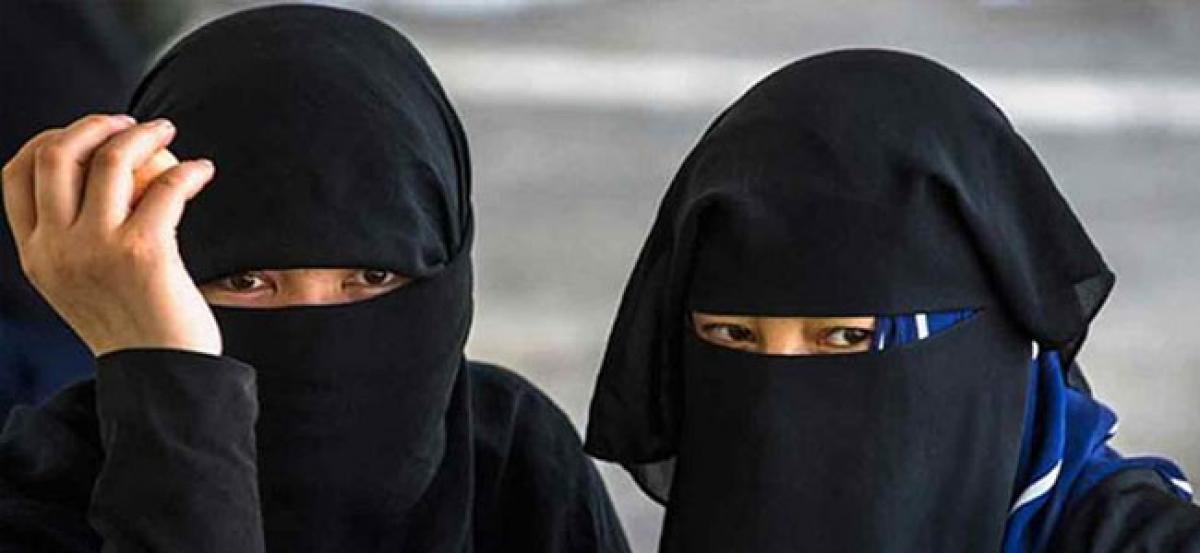Live
- Cong-BJP spar over Sidda’s 'horse trading' charge
- Ruckus over arrest of social media activists
- Cops intensify probe
- Uphold prestige of Assembly: Pawan
- Children are nation's future, says Revanth
- SC junks plea to ban WhatsApp
- RRR elected Assembly Dy Speaker unopposed
- Cong wants separate Constitution in J&K
- Modi never read Constitution, hence it is blank for him: Rahul
- AP: Global destination
Just In

A city court has ruled that the marriage performed by a Muslim woman during the \'iddat\' (waiting) period is not invalid, even as the issue of triple talaq is being debated in the Supreme Court.
New Delhi: A city court has ruled that the marriage performed by a Muslim woman during the 'iddat' (waiting) period is not invalid, even as the issue of triple talaq is being debated in the Supreme Court.
iddat' (waiting) period is not invalid, even as the issue of triple talaq is being debated in the Supreme Court.
Under the Islamic law, a divorced woman has to wait during the 'iddat' period for about three months before she can remarry.
The Delhi court dismissed the claim of a man, accused of domestic violence by his wife, that their wedding was invalid as the per Islamic law, as she had not completed 'iddat' after getting a divorce from her first husband.
"Any marriage performed by a Muslim woman during the iddat period is an irregular marriage and not a void (batil) marriage. Hence, the contention of the man on this aspect is found to be without any merit," Special Judge Bhupesh Kumar said while relying on a Supreme Court observation.
The court said there was "sufficient evidence" to issue notice to the Muslim man, who works with the Coal India Ltd in Chhattisgarh, under the domestic violence act, saying "even depriving aggrieved person economically or financially amounts to domestic violence."
In her complaint seeking Rs 10 lakh compensation and monthly maintenance from the accused man, her second husband, the woman had said that he had concealed his first wedlock from her and when she found out about it, he started avoiding her and stopped sending her money.
She said she had married the accused after obtaining divorce from her first husband.
The man, on the other hand, denied that he had married the complainant, saying she was in the 'iddat' period and any wedding during this period is invalid.
"As per Islamic law, the female cannot remarry during 'iddat' period and any marriage taking place during 'iddat' period cannot be termed as valid marriage," he said, adding that the woman got divorced from her first husband on October 4, 2012 and the second nikah was performed two days later.
The court also rejected the man's contention that the provisions of Protection of Women from Domestic Violence (PWDV) Act are not attracted as there are no allegations of physical, sexual or verbal abuse in the application.

© 2024 Hyderabad Media House Limited/The Hans India. All rights reserved. Powered by hocalwire.com







